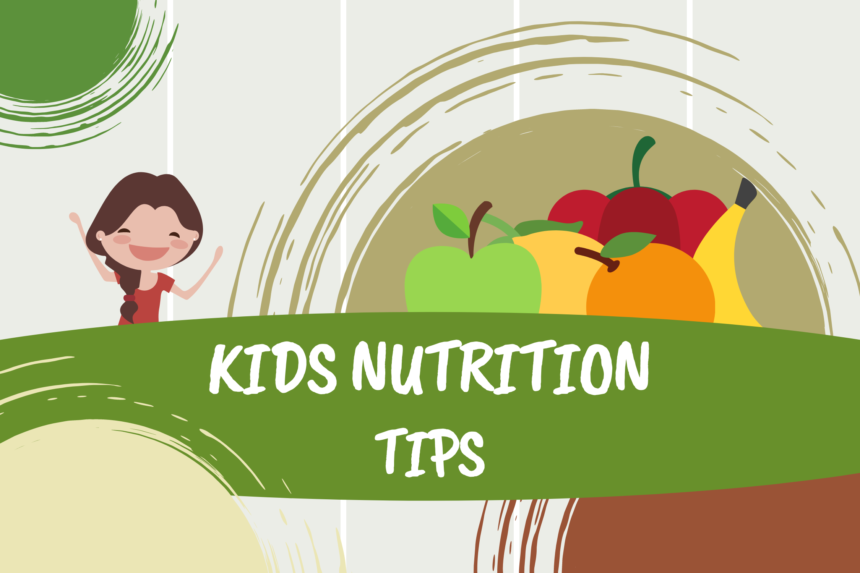
Best Nutrition Tips for Kids
Best Nutrition Tips for Kids
Eating healthy is beneficial to people of all ages. However, starting early in life can truly benefit your livelihood. Like many parents, you want the best for your child. Providing them with a proper diet ensures that your growing child receives necessary vitamins, minerals, and nutrients. Nourish your kids’ brains with these helpful nutrition tips. Remember, healthier diets earlier = happier and less picky eaters later!
Healthful eating can benefit your child by:
- Stabilize energy
- Improve self-esteem
- Reduce emotional and peer problems
- Physical and mental growth
- Boost the immune system
- Maintain a healthy weight
Also healthy eating can reduce health risks such as:
- Protein Deficiency
- Edema
- Asthma
- Skin, Hair and Nail problems
- Stunted Growth in Children
- Long-term conditions/problems
- Osteoporosis, Type 2 Diabetes, cardiovascular disease, etc..
When we’re hungry we tend to choose options that are quick and easy. For example, choosing fast food or processed food items at a store to quench thirst or hunger is the fastest way to feed children, but not the best. Try to take snacks on the go to make their hunger abide until it’s mealtime.
Best nutrition tips for kids’ diet
1. Well-balanced nutrition diet
Focus on providing the correct foods to aid in physical and mental growth. Be sure to choose foods rich in vitamins, minerals, complex carbohydrates, and protein to help improve their life.
Great examples are: grilled chicken or fish, veggie mac and cheese, tacos, homemade pizza with lots of toppings, roasted veggies (more flavor!), and sliders.
2. Stay away from processed foods
Actual raw fruits and veggies offer more fiber and nutrients compared to processed juices. Processed drinks and juices are favored with added sugar and artificial flavors. Even orange juice will have extra sugar in it!
Solution? Fruits! With its natural sugar, fruits almost never fail to satisfy a sugar-craving child. Figure out their favorite fruit(s) and do your best to always keep it in the house for those sugar cravings. Getting a juicer isn’t a bad idea either.
3. Stop the Clean-Plate Club!
Do not push your child to finish their plate. When they are done, they’re done. Let them respond to their own bodies when they are full. They are less likely to overeat. Many cultures pressure children to finish their meals due to certain beliefs. Yes, it is possible that your kid is trying to get out of eating their vegetables, but that is for you to determine! Work on finding a way to encourage them to eat them later if needed or find other creative ways to get them to eat their fruits and veggies.
Have you tried RUVI?
Large portions paired with the clean-plate mentality is a huge factor in childhood obesity and eating disorders. Please do not overfeed them as it can cause many mental health issues later in their life.
4. Oversee portion & eating habits
Control portion sizes and how often they eat during the day. Use www.choosemyplate.gov as a reference for portion sizes and as an added resource. Do not encourage mindless snacking for sake of boredom. If snacking is too hard of a habit to stop right now, check out fun, quick, and easy ways to make your own snacks!
Schedule regular meals and snack time throughout the day. Enforce the idea that mindlessly eating out of boredom is not ideal. Teach kids the best time to eat is only when you are hungry- that goes for adults too!
5. Be a role-model!
Kids’ urge to imitate is strong. Since you’re around them for most of their young lives, they look up to you as their role model. They tend to watch and follow your every move so make sure to leave a good impression on them.
Be mindful of eating healthy around them. If you tell them to eat their veggies while you chow down on ice cream, it sets a bad precedent. Many times kids want to have the things they know they can’t have, like that ice cream! Why not use a little reverse physiology and tell them veggies are only for adults? I bet some will start wanting to eat them more!
6. You decide what is stocked in the Kitchen
Do not give in to the children’s wishes for food. Ignore their desire for colorful packaged and processed foods littering grocery stores. You are the parent, thus you decide how to shop and what to eat in your home. Do not worry, your child will not starve and will still eat what is in the cupboards. If you can, try to go shopping without your kids so you can shop better. You can also make a list and stick to it, or try playing a game with the kiddos in the store to make the trip easier. Try “I Spy” and have them get the items on the grocery list. You can also ask them to pick out a new fresh fruit or vegetable they want to try!
7. Do not encourage emotional eating
Even in our age, our emotions can get the best us. When coping with stress, emotional low-points, and other difficult moments, we tend to eat to reassure our emotions. Therefore, try to recognize this and do not offer food as a coping mechanism, especially for kids. Instead, offer support through hugs, praise, problem-solving, or even stress-relief by reading a book or playing a game. Children are easily manipulated by using food as an emotional placeholder and can cause mental and physical health issues later in life.
8. Get the kids involved with food
When shopping ignore the request for less nutritious food from your children. Instead, educate and get them involved in picking out groceries and preparing meals. Show them different foods and teach them about the content of said item. Show them cooking processes and how each item contributes to a dish. Get them cooking! It is much easier to get a kid to eat a healthy meal they created verses one served to them.
These nutrition tips are important to your kids growth.
As a parent, your child’s well-being is important, especially at a young age. Besides school, you too are an educator in their young lives. You are the ‘at home’ 24/7 teacher for all their curious questions. Always strive to teach your kiddos new things and encourage healthy eating! They will thank you later in life.
